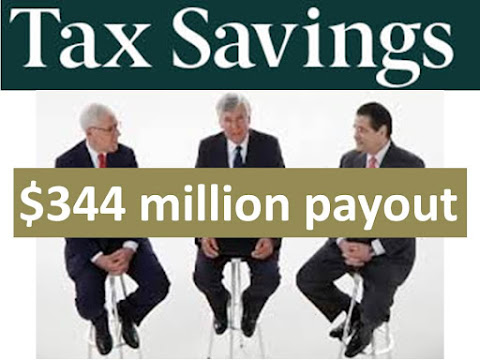Bloomberg Law reported:
A pension fund sued Carlyle Group Inc.'s senior leaders in Delaware, challenging a $344 million payment to the private equity firm’s founders in connection with the end of tax agreements they reached when taking the asset manager public.
When Carlyle went public it committed 85% of its cash tax savings to its three founders, stiffing new unit holders which includes pension funds.
Glenn Youngkin played a major role in taking Carlyle public, supervising the initial public offering in June 2014.Youngkin is now Virginia's Governor. Did the pension fund name Glenn in their lawsuit?
The American Accounting Association writes about a company's use of cash tax savings.
...our results suggest cash tax avoidance is associated with important firm decisions.
And for The Carlyle Group enriching already stinking super-rich founders is an important firm decision, one supported by the current Governor of Virginia.
Today KKR announced a deal which improves their ability to take a private company public.
Underwriting IPOs and other stock sales has become a big business for KKR, a pioneer in leveraged buyouts.
So a PEU could take another PEU public and this would be considered due diligence? That is patently laughable.
Maybe this pension fund can do what Congress cannot and seek justice/equity in the tax arena regarding private equity underwriters (PEU).
Politicians Red and Blue love PEU and increasingly, more are one. Conflicts of interest are now fractals in the financial PEUniverse. It's going to take alot of court action to clean up the greed and leverage boys' mess.
Update 8-14-22: The lawsuit names individual Carlyle executives, including Glenn Youngkin.
The 136-page lawsuit alleges that Youngkin received about $8.5 million of a $344 million payday engineered for a small group of top executives in 2019 and 2020, when he served as co-CEO.The executives “were unjustly enriched at the expense of and to the detriment of Carlyle and its stockholders,” according to the suit.
Update 8-18-22: NBC News reported:
...Carlyle insiders who received the payouts escaped a tax bill that would have exceeded $1 billion, according to the complaint, which accuses Rubenstein, Youngkin and other Carlyle officials of lining their own pockets at the expense of people like police officers and firefighters.
Under the deal, approved by the Carlyle board and code-named “Project Phoenix,” Youngkin began receiving $8.5 million in cash and exchanged his almost $200 million stake in the company for an equal amount of tax-free shares, according to court documents.
The Carlyle payout exemplifies the private equity industry’s laser focus on avoiding tax bills.
... the cash payout and tax-free exchange was “an extreme outlier” among such agreements, designed by the Carlyle insiders “to maximize the benefits for themselves in every possible way, to the detriment of the company and the public stockholders.”It helps to have compliant politicians who create and maintain PEU tax loopholes.
Youngkin managed the IPO from within Carlyle PEU self service is a core value.
A book review revealed information on David Rubenstein's lesser seen side:
....was not prepared for the turbulence he encountered when David M. Rubenstein, chair of the Kennedy Center, forced him out as producer of “The Kennedy Center Honors.” Stevens writes that Rubenstein came to his office on a Good Friday in what “proved to be a disturbing and somewhat bizarre meeting…[Rubenstein] seemed to apologize, saying this was his most difficult meeting since the time he fired George H.W. Bush and James A. Baker from his Carlyle enterprise.” He continues:
“Again, insufficient paranoia had let me down. David’s riches, after all, had come from hostile takeovers of corporations — ousting existing management, cutting costs and reaping windfalls. On reflection, my response was less tempered than I would have liked. ‘I think you’ll have to look around for a long time to find producers who will give you five consecutive Emmys.’ ”
I imagine for Kewsong Lee is was also disturbing and somewhat bizarre.
